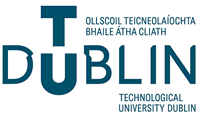Internet of Things (IoT) relies on wireless communication and it is a key motivation of many existing and future researches. This position focuses on the efficiency and sustainability of one of the most popular technologies known as Ultra Wide Bandwidth (UWB) transceivers for IoT applications. Variety of challenges exist for the practical implementation of UWB such as Pulse-shape distortion, channel estimation, multipath effects, multiple access interferences, and the trade-off between the power consumption and the range. There is thus great potential for developing novel techniques that are environment friendly as they use the energy efficiently and results to be presented at national and international conferences, exhibitions and publish articles in ranked journal publications.
Studies have shown that power consumption is increased by increase in bandwidth or increase in pulse rate. This is captured at transistor drain of the power amplifier, and this means that more power is required and consequently more power will be wasted as heat. Signal processing algorithms such as Digital Pre-Distortion (DPD) can reduce the power waste and improve the efficiency, while the range/distance, security and computational complexity shall not be compromised. The following Objectives are targeted:
1- Design an optimized UWB transceiver that outperforms all existing designs for maximum power and range with minimum extra computational complexity added to the system.
2- Design an algorithm for enhancing the security of the UWB transceiver by considering the channel response while maintaining the SNR, Pulse-shape distortion, and range.
Student requirements for this project
BSc in Electrical/Electronic/Communication Engineering and MSc in relevant disciplinary
English requirement according to TUDublin’s guidelines for postgrads
Practical experience using UWB and principles applied to IoT applications
If you are interested in submitting an application for this project, please complete an Expression of Interest (https://www.dit.ie/media/documents/study/postgraduateresearch/EOI%20Form.doc) and email it to [Email Address Removed].
If you cannot open the link, please copy and paste the link into a different browser tab. Applications submitted without EOI form will not be considered

 Continue with Facebook
Continue with Facebook



